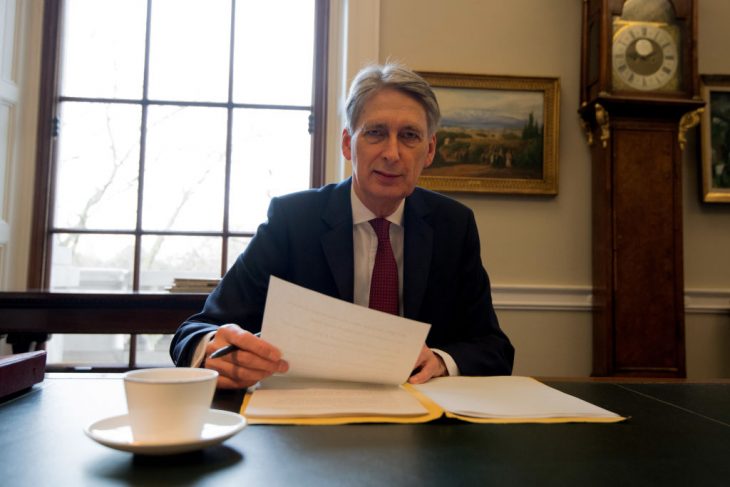Philip Hammond had, in his first few months of Chancellor, gained rather a reputation for being an ‘Eeyore’ about the consequences of Brexit. In the run-up to today’s Budget, it was briefed that he would be much more upbeat about things, while also storing up a ‘war chest’ to guard against any future shocks to the economy caused by Britain leaving the European Union. In the event he barely talked about it at all.
He told the Chamber that ‘as we start our negotiations to exit the European Union, this Budget takes forward our plan to prepare Britain for a brighter future’, and ’our task today is to take the next steps in preparing Britain for a global future’. And he joked that even though Britain was now forecast to meet its three per cent EU Stability and Growth Pact target this year for the first time in almost a decade, ‘I won’t hold my breath for my congratulatory letter from Jean-Claude Juncker’. And that was it.
The focus of today’s statement was domestic, and on sorting out a few rows that have been brewing in the Conservative Party. The biggest one has been on social care funding. Hammond announced £2 billion for social care in England over the next three years, with £1 billion available in 2017-18. The Communities and Local Government Select Committee had demanded a £1.5 billion spending pledge for this year, and the Local Government Association, which is Tory-led but has been vociferous in its demands for more money has so far made positive noises about the pledge.
As predicted, Hammond also shifted the focus away from Whitehall and back to local government, reiterating his favourite statistic that ‘just 24 local authorities are responsible for over half of all delayed discharges to social care’. The Budget document says that the funding will be ‘supplemented with targeted measures to help ensure that those areas facing the greatest challenges make rapid improvement, particularly in reducing delayed transfers of care between NHS and social care services’.
And he did promise a Social Care Green Paper on the future financing of the system (but not, he insisted, using a ‘death tax’) later this year. Those who have been campaigning for proper long-term reform might be forgiven for feeling a little cynical, given the number of Green Papers that have come and gone without making any difference over the past decade.
On business rates, he also sought to quell a Tory row, announcing three measures which he said would help: any business coming out of Small Business Rate Relief will see their bill increase by no more than £50 a month, the vast majority of pubs will get a £1,000 discount on business rates in 2017, and councils will get a £300 million fund to help the hardest hit.
As with many Budgets, the Chancellor went in trying to solve rows – but seems to have emerged with another, potentially much bigger one on his hands. The plan to raise National Insurance Contributions by two per cent for self-employed workers directly contradicts the ‘tax lock’ pledge that the Tories made before the 2015 election. That pledge included the words ‘no increases in national insurance’. It will be difficult for Tory MPs to justify this ‘stealth tax’ to their constituents when it wasn’t in the manifesto. Already there is talk of this being Philip Hammond’s 10p tax debacle. Surely he must have prepared a spreadsheet to help him through this new row?







Comments